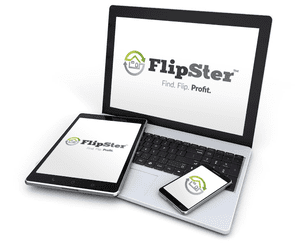Managing rental properties can be a rewarding venture, but to ensure it runs smoothly and generates consistent income, a focus on efficiency is necessary. Property management may initially seem overwhelming, especially with responsibilities such as tenant relations, property maintenance, and financial management. However, with a structured approach, rental properties can operate seamlessly while delivering strong returns. This guide will offer insights into managing rental properties for maximum efficiency, breaking down the key areas that contribute to a well-managed and successful property.
Understanding the Importance of Efficient Property Management 
Efficient property management is crucial for keeping operations smooth and profitable. When managed efficiently, rental properties are more likely to attract and retain quality tenants, minimize vacancies, and maintain the property’s value over time. Additionally, efficiency in property management reduces the likelihood of costly errors and oversights.
The goal of efficient management is not just to save time and reduce stress but also to optimize your investment returns by maximizing rental income while controlling expenses.
1. Tenant Selection and Retention
A significant aspect of efficient property management begins with tenant selection. Choosing responsible and reliable tenants reduces the risks of late payments, property damage, and frequent turnovers. To achieve this, thorough tenant screening should be performed. This process can include checking credit reports, verifying income, contacting previous landlords, and conducting background checks. It is essential to have clear criteria that each tenant must meet.
Once quality tenants are secured, efforts should be made to retain them. Long-term tenants reduce turnover costs such as cleaning, advertising, and lost rental income from vacancies. Offering competitive rental rates, responding to maintenance requests promptly, and providing a positive living experience will contribute to tenant satisfaction and retention.
2. Automation of Rent Collection
One of the most common inefficiencies in rental property management stems from manual rent collection methods. Transitioning to automated rent collection can greatly enhance the efficiency of property management. Automated payment systems allow tenants to pay their rent electronically, ensuring timely payments while reducing the need for reminders, checks, or in-person collections.
Property management software often includes these payment features, allowing rent to be collected automatically on a set date. Tenants can be given the option to set up direct deposits or use credit cards, both of which streamline the rent collection process. Furthermore, automated systems can issue late fee reminders and calculate penalties, ensuring that everything runs on schedule.
3. Regular Property Maintenance
Proper maintenance of rental properties is key to keeping them in good condition, retaining tenants, and avoiding costly repairs in the long term. Proactive property maintenance is an efficient way to keep everything running smoothly. Instead of waiting for things to break down, scheduling regular inspections and minor repairs can prevent larger issues from developing.
Creating a maintenance schedule that includes HVAC system checks, plumbing inspections, and pest control services helps prevent significant problems and keeps tenants happy. Many property management software platforms also allow landlords to track maintenance requests and create a system for handling routine tasks and repairs efficiently.
Additionally, keeping open communication with tenants about maintenance issues encourages them to report small problems before they become major. This proactive approach not only saves money but also enhances the tenant experience.
4. Outsourcing Property Management Tasks
For landlords managing multiple properties or lacking the time to handle day-to-day responsibilities, outsourcing certain property management tasks can greatly enhance efficiency. Property management companies can handle tenant screening, rent collection, maintenance, and legal issues, freeing up the landlord’s time to focus on other aspects of their investments.
While there is a cost associated with hiring a property manager, it can be worthwhile for those seeking hands-off management or those who live far away from their rental properties. Outsourcing also ensures that experts are handling specific tasks, which reduces the chance of errors or oversights.
5. Legal Compliance and Documentation 
Efficiency in rental property management also involves staying compliant with local, state, and federal laws. This includes ensuring that leases are up to date, adhering to fair housing regulations, and staying informed about any legal changes in property management.
Clear and well-drafted lease agreements are essential for preventing disputes. The lease should outline all tenant and landlord responsibilities, including rent payment terms, maintenance expectations, and rules for property use. Having a standard lease agreement and clear communication regarding tenant obligations helps prevent misunderstandings that could lead to inefficiency.
Property management software can assist in maintaining proper documentation, ensuring that all legal requirements are met and important records are kept securely and accessibly.
6. Handling Vacancies and Marketing Properties
Minimizing vacancies is a critical component of maximizing efficiency in rental property management. The longer a property sits vacant, the more potential income is lost. Having a plan in place to fill vacancies quickly will reduce income gaps.
This process begins with marketing the property effectively. Digital marketing has become an indispensable tool for property managers. Listings on popular rental websites, such as Zillow and Apartments.com, as well as social media platforms, allow properties to be showcased to a wide audience. High-quality photos, detailed descriptions, and competitive rental prices will help attract potential tenants quickly.
When a tenant gives notice to vacate, starting the re-rental process early is essential. The earlier the property is marketed, the more likely it is to be filled without a long gap between tenants. Ensuring the property is in good condition for showings also aids in filling vacancies faster.
7. Implementing Property Management Software
Technology has become an invaluable tool for streamlining rental property management. Property management software provides a centralized system to handle key tasks such as tenant applications, rent collection, maintenance tracking, and document storage.
This software also allows for tenant communication, enabling tenants to submit requests, ask questions, or pay rent all in one place. For landlords, it simplifies day-to-day operations by automating routine tasks, tracking expenses, and generating financial reports.
By integrating software into the management process, landlords can save time, avoid errors, and ensure that everything is well-organized and running efficiently.
8. Financial Planning and Budgeting
Effective financial management is a cornerstone of successful rental property management. Creating a budget that accounts for all potential expenses, including maintenance, repairs, vacancies, taxes, and insurance, is crucial for maintaining profitability. Planning for unexpected expenses by having a reserve fund can also prevent financial strain during emergencies.
Regularly reviewing the property’s income and expenses allows for better financial decision-making. Tools like property management software can generate reports to help track profit and loss, making it easier to evaluate the performance of the property and identify areas where cost-saving measures can be implemented.
Conclusion
Managing rental properties for maximum efficiency requires a proactive and organized approach. By focusing on efficient tenant selection, automation, regular maintenance, legal compliance, and leveraging technology, landlords can reduce the complexities of property management while maximizing their returns.
While managing properties may seem daunting at first, adopting efficient strategies ensures that the process becomes smoother and more profitable over time. Whether managing a single property or an extensive portfolio, applying these principles will help keep operations streamlined, tenants satisfied, and profits growing.



